Which Cats Get Adopted Less? Learn How You Can Help
Biases and preferences can get in the way of adopting a perfectly adorable cat. Here’s a look at the least adopted cats, and why they tend to languish in shelters.
Biases and preferences can get in the way of adopting a perfectly adorable cat. Here’s a look at the least adopted cats, and why they tend to languish in shelters.
by Madeleine Aggeler, updated by Alicia Kort, | April 19, 2024

Narucha Klinudom / Shutterstock
There are a variety of factors that make a cat less adoptable. For starters, because there are usually many cats to choose from in an animal shelter, potential pet parents are more likely to go for the kittens, leaving adult and senior cats behind. There’s also the longstanding and harmful superstition about black cats, which means that they are less likely to find forever homes. But there are other groups of often overlooked cats left behind at shelters.
So if you’re looking to bring a cat into your life, you should consider a less adoptable pet, which saves them from a very long shelter stay — or even euthanasia. Below, we break down some common concerns, alongside the advantages of breaking away from adoption biases.
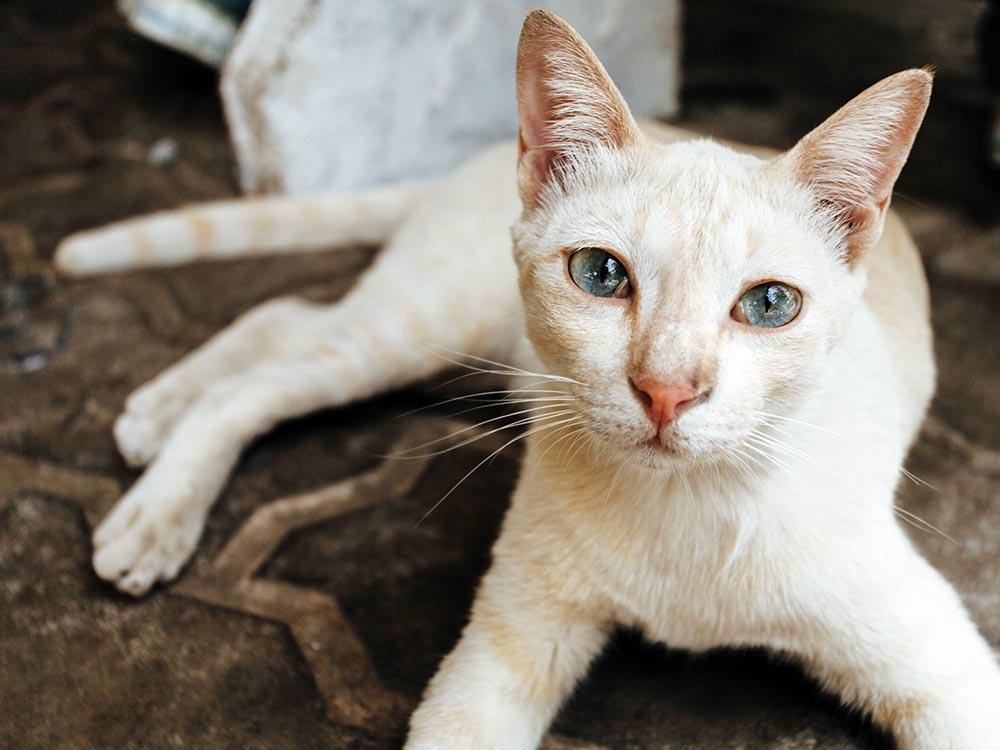
EASY 2 SHOOT / Stocksy
Oftentimes, kittens are quickly scooped up from shelters, because these tiny balls of fur are impossibly charming and adorable. Why go so young? Adopters sometimes worry that they’ll have less time with an older cat, or that an older cat will soon develop health issues, which can rack up medical bills. Some also worry that an older cat might be more aloof and set in their ways, though this isn’t at all true.

Stable personalities, chill dispositions, totally trained — adopting an older cat can be a smart move. Here’s everything you’ll need to know before adopting a senior kitty.
Senior cats are a great option for people who may want a more mellow, low-maintenance companion. These felines often already know how to use the litter box, are socialized with people and other pets, and are generally less hyper than a kitten. What’s more, for those concerned that they may enjoy less time with their senior cat because of their age, consider that cats typically have fairly long life expectancies. Plus, any animal you bring into your life will eventually require some medical care. No matter which cat you adopt, pet insurance is a great option to offset some of those potential costs.
Cats with special needs end up staying at the shelter longer than other felines. These include cats who have lost limbs, have a pre-existing medical condition — such as asthma, Feline Immunodeficiency Virus, or Cerebellar Hypoplasia (aka Wobbly Cat Syndrome) — or are blind or deaf. Potential adopters believe that these cats are going to be more expensive, require more medical care, or are too high-maintenance

Are you thinking of adopting a cat? Here are four reasons to adopt one of these often-overlooked kitties.
Truth be told, potential pet parents shouldn’t assume that the cat they’re adopting is healthy and will be healthy for their entire lives. They should expect medical costs at some point, have pet insurance, and keep an emergency fund dedicated to their furry family member. Special-needs cats learn how to adapt with their disability or illness, and can still live full, love-filled lives. They might require some more attention, including the administering of medicine, and require special considerations (for example, parents of a blind cat might want to put guards over sharp furniture corners). Your bond might actually grow deeper with a kitty whom you’ve helped. These cats will be so grateful to get out of a shelter that pet parents will find so much joy in watching their cats relax in their new forever homes.
Cats in rescues or shelters who don’t immediately come off as cuddly or friendly are often passed up. Some of these cats have experienced less-than-pleasant home environments prior to coming into the rescue, or they are feral, meaning they haven’t had much, if any, interaction with humans. Both may experience fear in a shelter. This environment is stressful for any animal, regardless of their socialization, but even more so for cats who have never been around people. Potential adopters are quick to judge on first impressions, when it is clearly not the potential adoptee’s best day. For better context, adopters should ask shelter staff if the cat is suitable for homes with children, other cats, or other pets.

By creating a safe space, respecting your cat’s boundaries, and using positive reinforcement, a shy cat can absolutely thrive in your home.
With that being said, there are many benefits to adopting a shy cat. For one, there’s no better feeling than watching a shy or anxious kitty come out of their shell. Once they get comfortable in your home, the change could be astronomical. We’re talking full belly-up naps in the sun, constant cuddles, and many zoomies. Their true personalities will come out once they know they’re safe, which is so rewarding as a pet parent. The shy ones will always surprise you.

w-ings / iStock
Two cats who have been raised together (or have lived together for many years) can often become what is known as a bonded pair. The duo will spend most of their time together, and often run to each other’s side when one is in distress. When a bonded pair arrives at a shelter or rescue, the staff will often try to re-home them together, a measure necessary not just for their emotional health, but also their physical health.
“Separating a truly bonded pair is heartbreaking,” says Kristen Hassen, the Director of American Pet Alive! and Human Animal Support Services. She adds that with cats in particular, separating a bonded pair can be life-threatening. “I’ve seen on more than one occasion two cats who were bonded actually die when they were separated.”
For adopters who aren’t sure whether they’re ready to welcome twice as many cats into their home, consider the benefits: Bonded pairs will keep each other company when you’re gone, and they’ll probably adjust to their new home quicker since they have each other. Plus, you’ll be saving twice as many animals as you had planned on.
At the end of the day, Hassen says, every animal ends up being a special-needs pet in one way or another. “They have special needs, because they’re all individuals. What we want people to do is, when they do look for their next pet, consider all of those animals who are waiting for a person just like them, and who want to be seen, and are often not seen in the midst of all the puppy and kitten adorableness.”
Like we mentioned before, cats of specific colors are less likely to get adopted. Some of that is due to superstition, a cat’s reputation that is associated with their color, and personal preference.
Black cats have been fighting their bad reputations for centuries, thanks in large part to the superstition that you’ll get bad luck if they cross your path. Parents of black cats would strongly disagree with this statement. Another reason that black cats are less likely to be adopted (and have higher euthanasia rates) is that they don’t photograph well. People are often swayed to choose a cat based on how they appear on a shelter’s website.

Here’s a primer on the cultural history of black cats, why they look the way they do, and how to celebrate Black Cat Awareness Month.
According to one 2020 study, gray cats were also less likely to be adopted than cats with different coat colors. There are no superstitions associated with their coat color, so this is likely a subconscious preference.

Here’s a quick guide to finding the right gray or silver cat for you.
The same study observed that orange cats had similarly low adoption rates to gray cats. In recent years, orange cats have become associated with being high-energy and chaotic.

If you enjoy silly and entertaining cats, consider an orange one.
All cats deserve loving homes, especially the ones considered less adoptable. Senior cats, bonded pairs, black cats, special-needs cats, and fearful cats will typically sit longer in shelters and are thus more likely to be euthanized. By inviting one of these types of cats into your home, you’re literally saving lives. Also, by taking a cat home, you open up a spot in a shelter or rescue for another cat in need to fill. Overcrowded shelters are why less adoptable cats are euthanized. To find adoptable cats in your area, start with an Adopt a Pet search.
All cats are different, so we can’t say for sure if older cats are more affectionate than younger ones. But older cats are calmer and will probably want to spend the day cuddling or basking in the sun. A younger cat will want to spend more time playing or causing chaos around your house. Older ones are generally more mellow, and perhaps a little more likely to want a warm lap to sleep on.
Yes, and black cats are also the most likely to be euthanized. This is despite the fact that they have the most common cat-fur color. The black cat’s reputation is beginning to shift as superstitions have started to fade, and advocates are encouraging the adoption of black cats. Still, the numbers have not yet leveled out.
Coat Color and Cat Outcomes in an Urban U.S. Shelter
For Black Cats, Superstition Ain’t the Way, Colorado State University Study Finds

Madeleine Aggeler is a freelance journalist and copywriter in Washington, D.C. Previously, she was a writer at New York magazine’s The Cut. She lives with her dog, Cleo, who works primarily as a foot warmer.
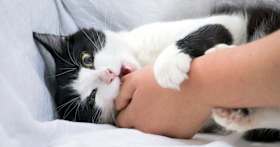
Behavior & Training
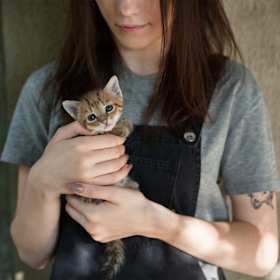
Adoption Advice
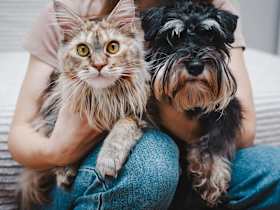
Adoption Advice
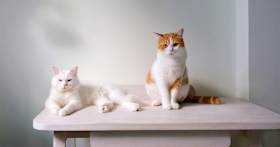
Adoption Advice
Find out how these cats compare and which is right for you.
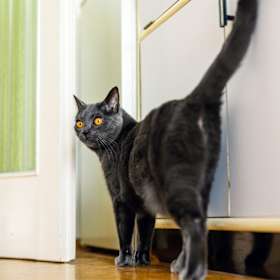
Behavior & Training
Is your cat spraying? Read more to learn the why cats spray and effective methods to stop this behavior.

Pet Wellness
Uncover the truth about declawing cats and its impact on feline well-being.